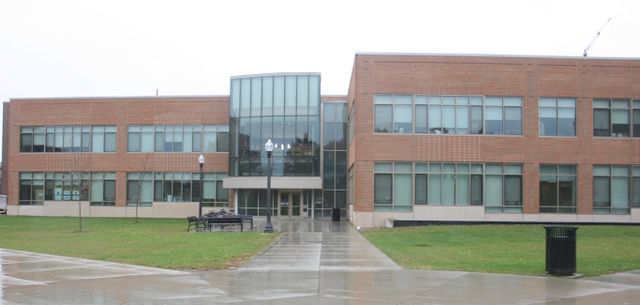Kent State professor receives grant to conduct drone research project
Blake Stringer , an assistant professor in the College of Aeronautics and Engineering at Kent State, has been granted $130,000 for a one-year drone research project funded by the army research laboratory. He is set to conduct a study on propulsion systems for drones used in the military.
Along with his background in engineering and aeronautics, Stringer served as an Army aviator for 20 years. There are three separate teams working on multiple stages of this project: the University of Tennessee, a consultant to the Army and Stringer himself along with his research assistant, Kendy Edmonds.
His purpose for this study is to discover if an unmanned drone can develop the same capabilities as a manned aircraft that includes a larger size and improved function.
“Unmanned aircraft are now one of the disruptive technologies in aviation in the century,” Stringer said. “With smaller, unmanned aircraft, we really see a lot of the capabilities that those platforms have, and we’ve seen larger ones that have a lot more military applications. The military application here is if we can grow this to a certain size. Can we do things that we normally have to do with manned helicopters? If we have to do that in a harsh environment or a threat environment, then it allows us to use assets that don’t have people in them and don’t have as much risks to send into dangerous areas.”
The key to unlocking the solution is to further study propulsion systems in drone technology, Stringer said.
“A propulsion system, or a power plant, is what an aircraft uses to fly, to provide the thrust that you need,” Stringer said. “Conveniently, it’s been gas turbine or piston engines that turn a propeller or a gas turbine that runs through some kind of jet aircraft. In this case, we’re using batteries to power electric motors, which has a lot of benefits in terms on noise and has a lot of benefits in terms of eliminating fossil fuel usage or reducing fossil fuel usage.”
Regardless of the benefits of battery use, Stringer and his team have faced obstacles around this area of their study.
“It has its own challenges in terms of how much energy you can get out of a battery, how long you can get that energy out of battery and things like that,” he said.
Another challenge Stringer faces in his study is maintaining the temperature of the motor in the drone.
“While the motor is spinning, the temperature is fairly constant,” he said. “As soon as we take the power away and take it back down to zero, you don’t have that air coming around the motor to cool it, and the temperature rises pretty rapidly. If we’re pushing enough power through the motor, the temperature goes up high, in some cases enough to see smoke.
“What we’re doing now is trying to come up with a model of that temperature as based on power, so we can maybe predict how fast that temperature is going to shoot up, and then maybe how high it’s going to get,” he continued.
The goal of Stringer’s research is to find the limit in the technology used in smaller drones and how much of it can be applied to developing larger ones.
“We hope to find the limit of where we can use the type of technology that small unmanned aircraft are using now,” he said. “So, variable speed and electric motors.What’s the limit of their utility and scaling to a larger kind of unmanned aircraft? At a certain point, the dynamics and interactions change as you get larger and larger, and we’re trying to find what some of those considerations are and where that limit is.”
Janai Flowers, a senior political science major, is fascinated with the research happening on campus.
“I think that it’s really smart because we have a nice aeronautics program, and it would be something that, if we can develop this, it would be a good image for Kent State,” she said.
Stringer said this study has opened the door for further research that stretches beyond a year time frame.
“The planned phase was only for one year, but based upon the things that we learned, it’s opened up more questions of things that we should study next,” he said.
Patricia Battle is the military and veterans, adult services reporter. Contact her at pbattle@kent.edu.


